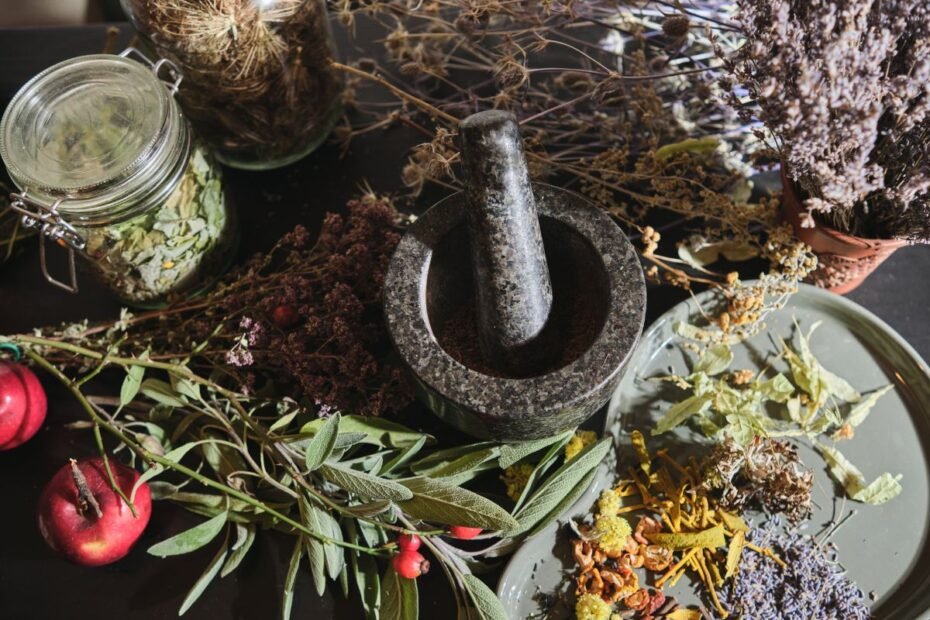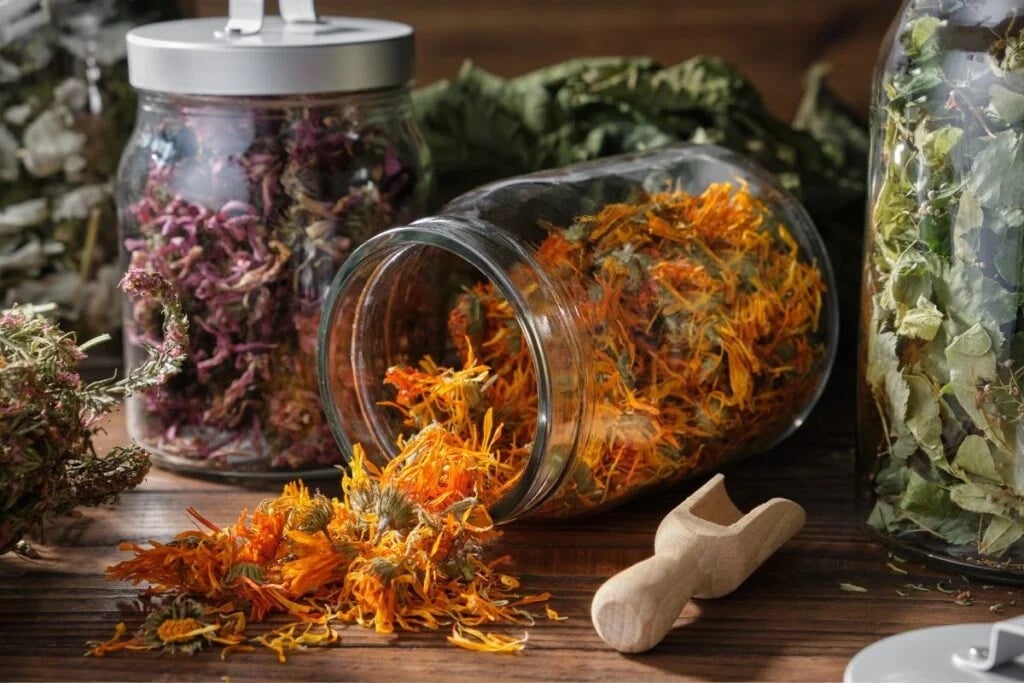Each year, interest in healthy eating and internal body cleansing—commonly called detoxification—continues to rise. Online platforms, pharmacies, and herbalists now offer herbal remedies, detox teas, capsules, and complete nutrition programs designed to purify the body. But how to choose the right viewpoint without being misled? And what does current scientific research say about detox practices and detox tea benefits?
Detoxification Through Traditional Herbal Medicine
Traditional medicine has long praised the benefits of detoxification, often achieved through medicinal plants. While these practices have deep roots in centuries of experience, detox teas rarely rely on scientific validation. In other words, whether you believe in it or not is up to you.
From a practical standpoint, it may be worth trying some of these methods yourself, cautiously and in moderation. It’s important to remember that even natural remedies, if misused or consumed in excess, can pose heavy health risks.
So, if you’ve decided to explore herbal detox despite the debates, here’s a closer look at what you need to know.
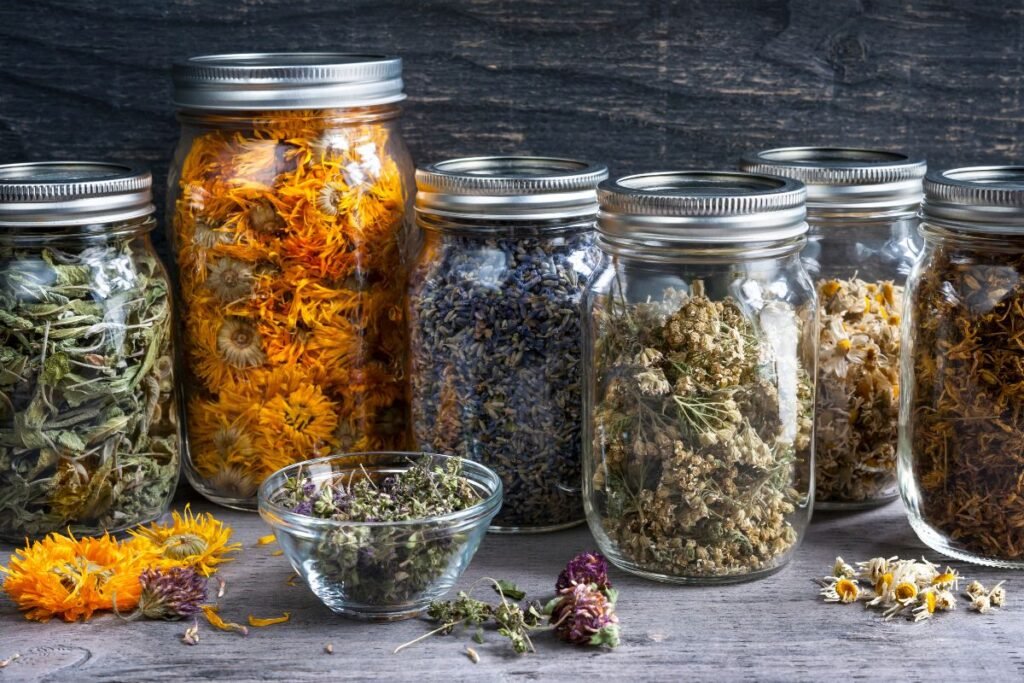
Why Detox? Understanding the Modern Toxic Burden
In today’s world, detoxification is increasingly seen not as a luxury but as a necessity for those who wish to preserve vitality, extend life expectancy, and maintain overall wellness. Cleansing the body of toxins, metabolic waste, and parasites can help restore balance, support metabolic functions, and improve energy levels — these functions are detox tea benefits.
Many chronic ailments—from digestive issues to skin conditions—are often linked to internal toxin buildup. Harmful substances commonly found in our environment include
- Carcinogens
- Artificial colorants
- Heavy metals
- Nitrates
- Synthetic fertilizers
When Is Detoxification Necessary? Key Warning Signs
Some common signs that your body may benefit from detox tea include
- Weakened immune function
- Frequent, unexplained headaches
- Heightened sensitivity to weather changes
- Mood swings and irritability
- Sudden onset of allergies
- Digestive disturbances
- Persistent insomnia
- Nausea or queasiness
- Anxiety or unexplained nervousness
- Chronic fatigue
- Low motivation or disinterest in the surroundings
- Lack of energy for everyday tasks
- Sudden, unexplained weight gain
Depending on your health profile, additional symptoms may include joint pain, shortness of breath, or flare-ups of chronic illnesses—signals that your system may be overwhelmed by accumulated toxins or parasitic activity.
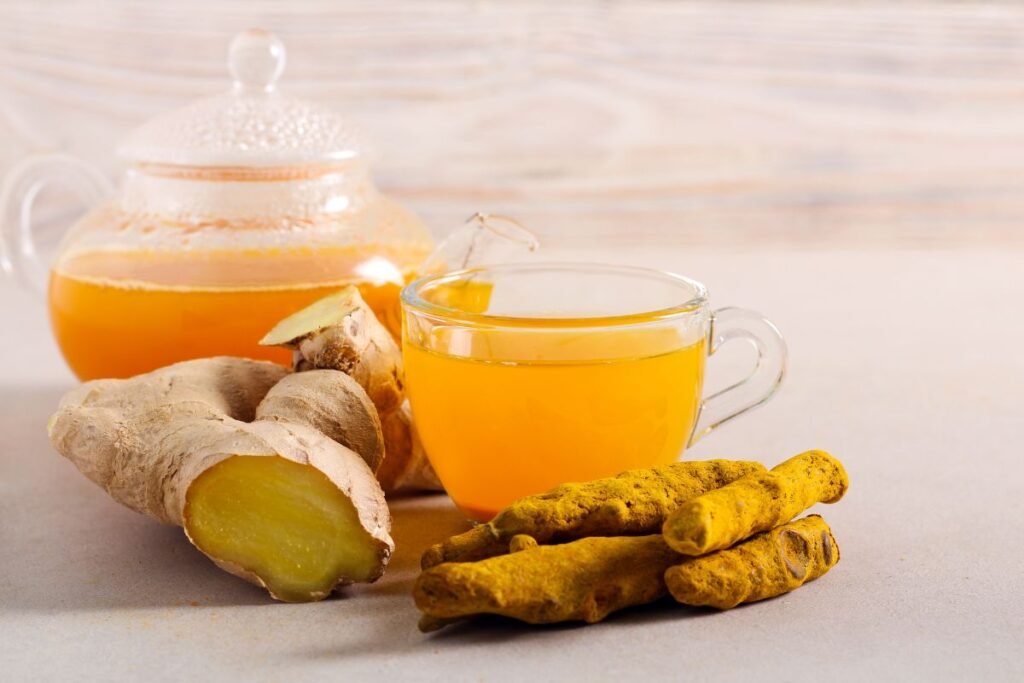
Gentle Herbal Cleansing: A Natural Approach to Detox
When considering a detox program, it’s essential to avoid extreme or “shock” approaches. A gradual, balanced cleansing process that supports the immune system and strengthens the body is key. The right blend of medicinal herbs can be particularly effective in this situation.
You can prepare detoxifying herbal teas using individual herbs or pre-formulated mixtures—either homemade or commercially available.
Detox Tea of Rosehip and Black Currant Blend
Ingredients (equal parts):
- Dried black currant leaves
- Black currant berries (dried)
- Dried rosehips
Preparation:
Steep the herbal blend in boiling water and let it infuse for a minimum of 10 minutes. You should drink it before each meal, about half a cup of this detox tea.
This tea supports kidney function and has a pleasant aroma and a mild, soothing flavor. It is also recommended for individuals dealing with high blood pressure, bloating, cerebral vasospasms, or elevated cholesterol levels.
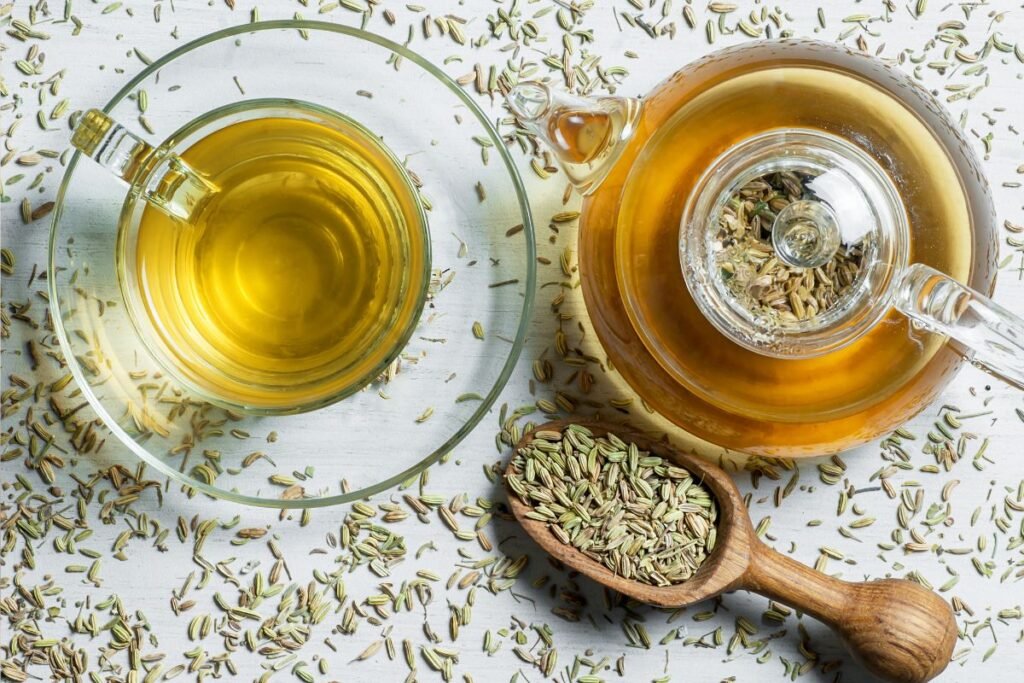
Fennel and Anise Seed Detox Tea for Digestive Cleansing
To follow a two-week herbal detox program focused on intestinal health, you will need the following ingredients:
- 1 tablespoon of anise seeds
- 1 tablespoon of fennel seeds
- 5 tablespoons of each herb (dried lemon balm, dried rosehips, dried yarrow)
Prepare the blend, infusing 2 teaspoons of this herb mix in 200 ml of hot water, and steep for a minimum of 10 minutes. Strain before drinking, if desired.
This herbal tea blend is particularly effective for gently cleansing the intestines and supporting gut health.
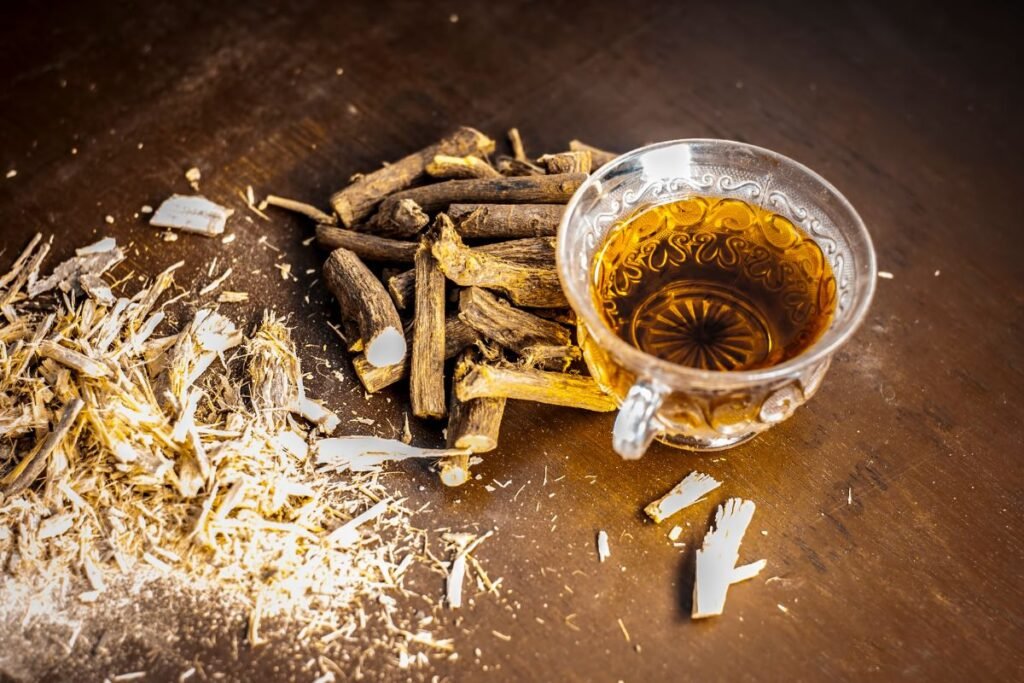
Licorice Root Tea: A Time-Honored Remedy
Combine equal parts of:
- Dried licorice root
- Caraway seeds
- Cherry bark
- Green tea leaves
Put 2 teaspoons of the mixture in hot water, steep, and let it sit for 10 minutes. Strain before consumption. Limit your intake to no more than 500 ml per day. These detox tea benefits include eliminating toxins and supporting optimal kidney function.
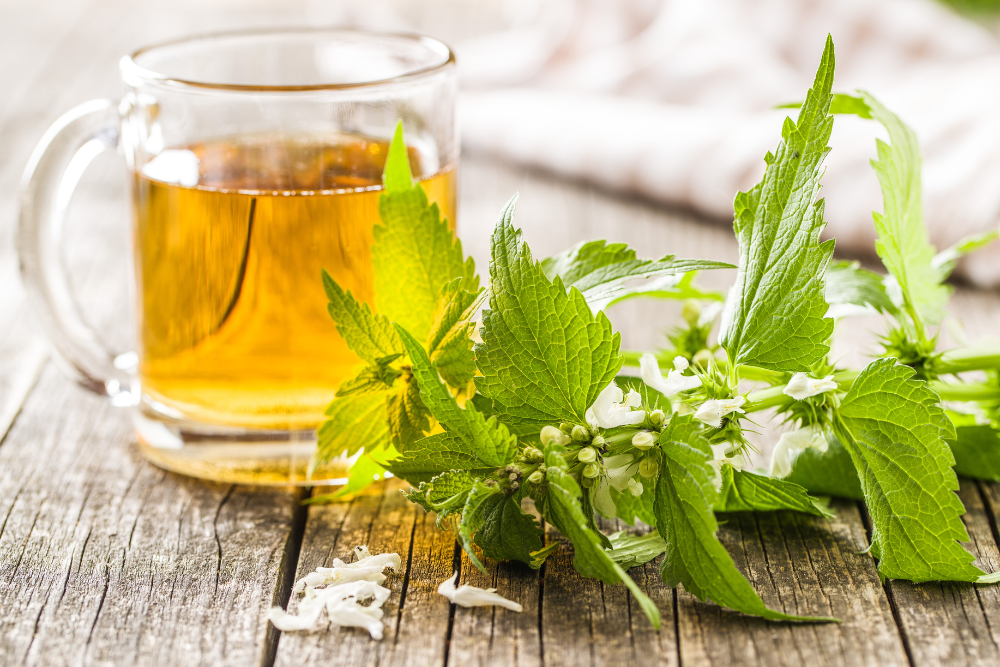
Nettle Tea: A Natural Detoxifier
You will need:
- Half a teaspoon of dried nettle (finely chopped leaves)
- 200 ml of boiled water
Pour hot water on the nettle herbs, steep the tea for 10 minutes. Strain once, slightly cooled. Drink it for 10 to 14 days up to three times daily.
Nettle tea is an effective herbal remedy for flushing out toxins and waste. It’s especially beneficial for individuals with inflammatory bowel conditions.
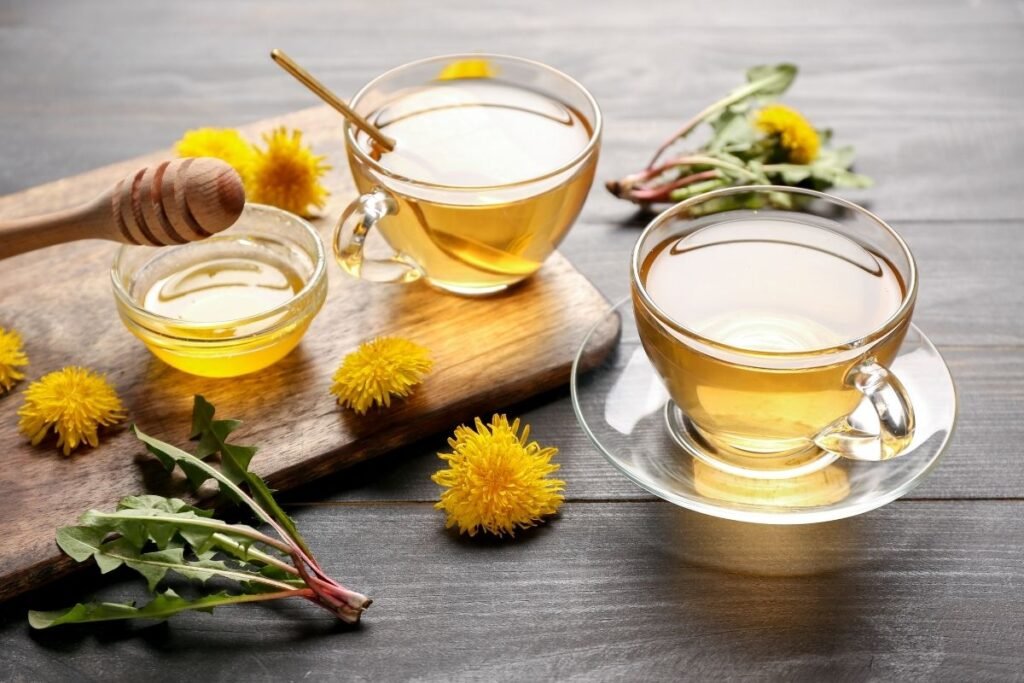
Dandelion Root Tea: A Remarkable Cleanser of Salt Deposits
You will need:
- 3 tablespoons of dried, crushed dandelion roots
- 2 liters of boiling water
- A thermos
Place the dandelion roots in a thermos and pour in the boiling water. Let the mixture steep for 3–4 hours. After straining, drink 3 to 4 times after meals, about 150 ml of this detox tea.
This tea is traditionally used to help remove salt deposits from joints and the spinal area, supporting musculoskeletal health.
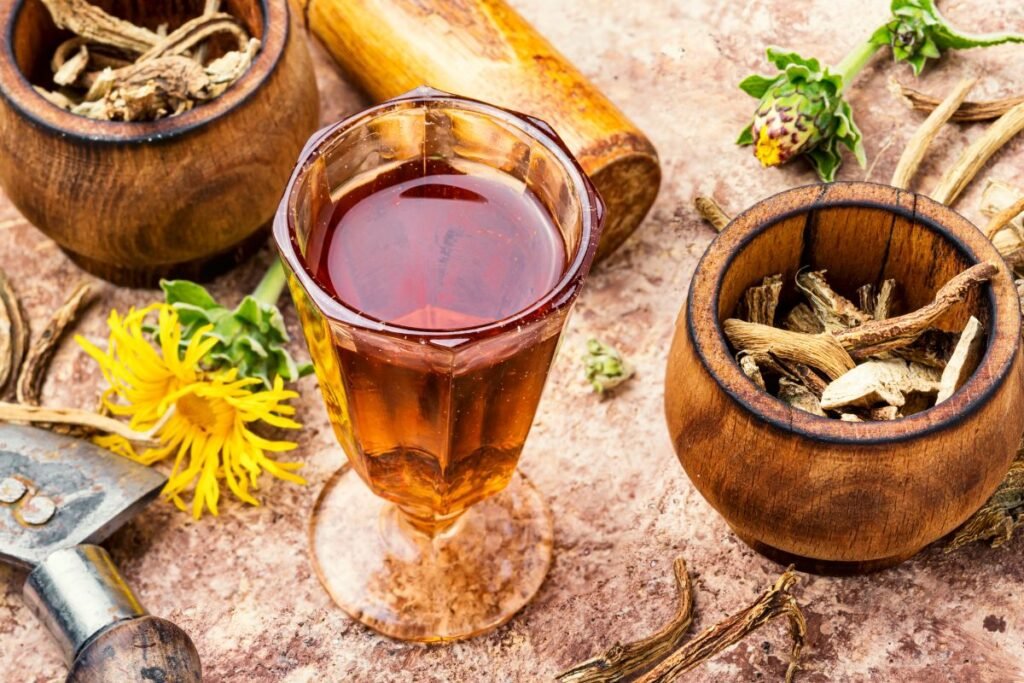
Detox Tea of Elecampane
Ingredients:
- 2 tablespoons of elecampane herb (fresh or dried leaves and stems)
- 400 ml of boiling water
Let the prepared detox tea steep for 3 hours after pouring the hot water over the elecampane herbal material. Drink it as regular tea.
While elecampane root tea is commonly known for treating coughs, few are aware of the detoxifying properties of its leaves and stems. This infusion binds toxins, reduces cholesterol, and helps eliminate excess fluid from the body.
Ginger Tincture: Fighting Intestinal Parasites
You will need:
- 250 ml of high-quality vodka
- 250 grams of fresh ginger root, grated
Mix the grated ginger with vodka in a glass jar. Cover it loosely (do not seal tightly) and let it infuse in a dark place for two weeks. Consume three times daily, taking only 1 teaspoon before meals.
Ginger is a potent natural aid against intestinal parasites and can be incorporated into meals as a preventative measure.
Caution: Always seek advice from a healthcare professional before beginning any tincture regimen. Ginger may cause side effects and is strictly contraindicated for pregnant women.
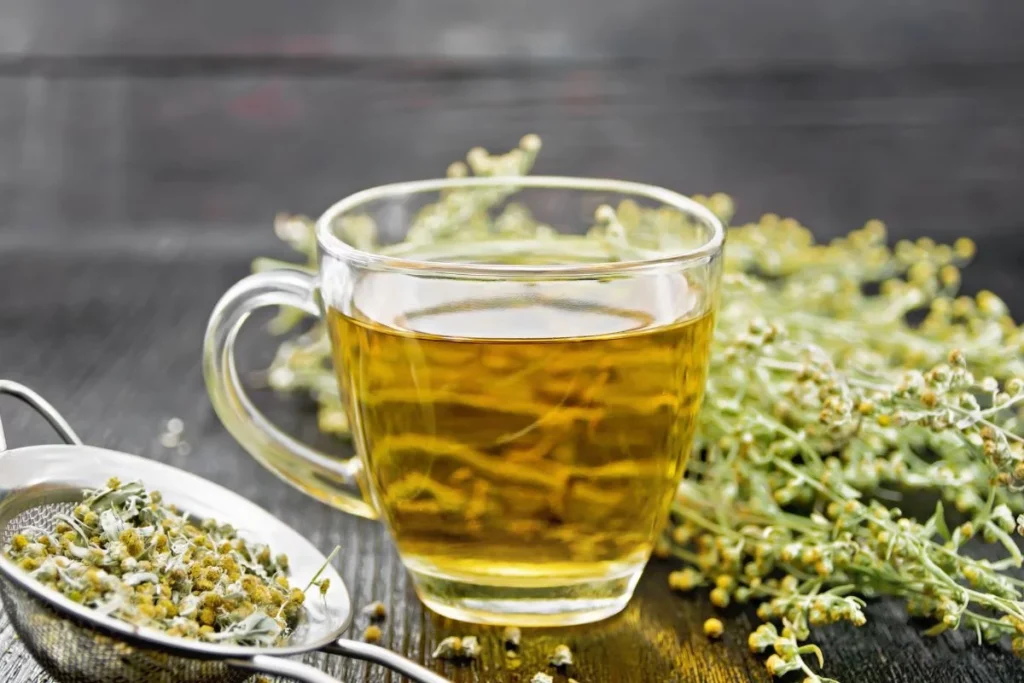
Wormwood, Tansy, and Clove Detox Tea: A Potent Trio Against Parasites
This well-known antiparasitic combination has long been praised in herbal medicine. You can grind equal parts of dried wormwood, tansy, and clove at home or purchase a ready-made blend from an herbal store.
To support the elimination of intestinal parasites, take 1 teaspoon of this blend with water each morning on an empty stomach and again before bedtime. The recommended duration for this cleansing protocol is 30 days.
Flaxseed Decoction: A Natural Binder of Harmful Substances
You’ll need:
- 100 grams of flaxseeds
- 1 liter of water
- A heat-resistant pot
Add flaxseeds to a saucepan, pour in the water, and simmer for 20 minutes. Allow the mixture to stand for 1 hour, then strain. Drink 100 ml daily, preferably in the morning, 30 minutes before eating.
Flaxseed decoction is often included in treatments for various digestive disorders. Its effectiveness lies in its rich composition of biologically active compounds that benefit the entire gastrointestinal tract. The decoction has strong sorbent properties—binding harmful substances and promoting their elimination from the body.
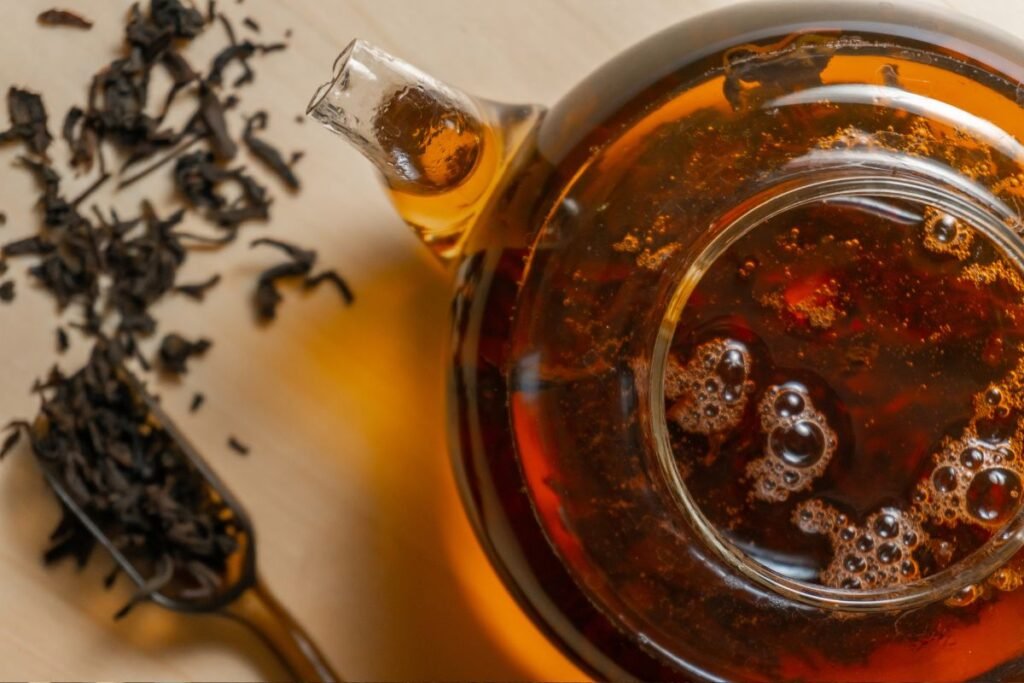
Cleansing the Body with Detox Tea After Alcohol Consumption
Though it may be an uncomfortable topic, detoxing from alcohol is sometimes necessary. Strong black tea with a small amount of sugar or honey can be surprisingly effective. The caffeine in black tea acts as a diuretic and stimulates the nervous system, helping to combat drowsiness and fatigue.
However, black tea is not suitable for individuals with cardiovascular conditions, as the combination of caffeine and alcohol may elevate blood pressure.
Another home remedy is a warm broth spiced with caraway seeds or cinnamon—gentle on the stomach and supportive of liver function.
To restore your body after mild alcohol poisoning, include foods rich in vitamins. Dried fruits, nuts, and vegetables provide carbohydrates, proteins, and antioxidants. Whole grain bread and bran are excellent sources of B vitamins, while citrus fruits, tomatoes, and red bell peppers are rich in vitamin C.
What Does Science Say About Detox?
When we have a role in detoxing with folk remedies, the scientific consensus remains cautious. Current research suggests that more studies are needed to confirm the efficacy of natural detox methods. While some herbal compounds may offer antiparasitic effects, their full impact—and potential side effects—are not yet well understood.
Researchers emphasize that while natural remedies can be promising, they may pose risks. The danger often lies not in inefficiency but in the potential harm caused by incorrect or excessive use.
As an alternative to herbal remedies, doctors and pharmacists may recommend pharmaceutical antiparasitic medications. These come with side effects, which they must review in the accompanying patient information leaflet.
Interestingly, some studies indicate that probiotic therapy could support the body’s ability to manage parasitic infections, though more rigorous research is needed to confirm this.
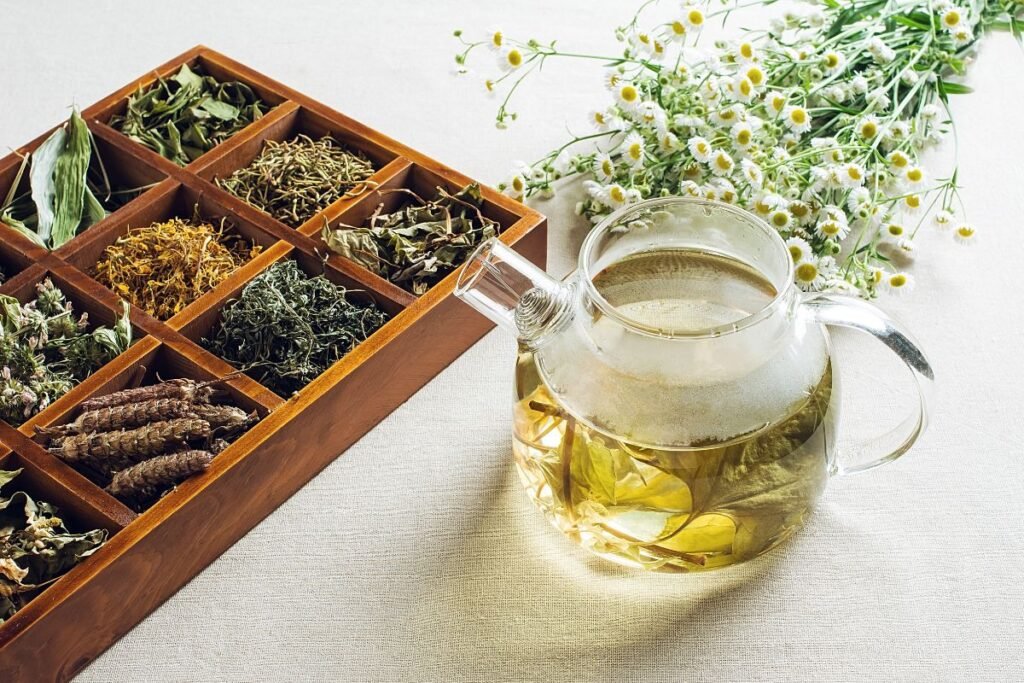
Potential Side Effects of Detox Tea
You must follow the guidelines while blending your herbal mixtures or harvesting plants. Most medicinal herbs are most potent during their flowering season. Leaves from currants, raspberries, strawberries, wild strawberries, and birch trees should be collected in early spring, just as they bud.
Avoid collecting herbs near busy roads or industrial zones—plants from these areas may accumulate harmful pollutants and are unsuitable for medicinal use.
Avoid detox tea if you are pregnant, breastfeeding, or have known allergies or sensitivities to specific plants.
Always research thoroughly or consult a medical professional before consuming any herbs. What may seem like a harmless tea can interact with medications or exacerbate existing health conditions.
In Conclusion
Any action that affects your body, especially in the name of health, should be thoughtful and well-informed. Natural detox methods are no exception. Remember that herbal remedies tend to work cumulatively, so don’t expect instant results. Benefits usually become noticeable only after several days.
As you explore different blends and flavors, you might find some teas so pleasant and beneficial that they become a lasting part of your routine. By alternating ingredients and taking short breaks between detox courses, you can gently support your body in clearing toxins, metabolic waste, and even intestinal parasites—without overwhelming your system.
Sources:
Research:
- https://www.ncbi.nlm.nih.gov/pmc/articles/PMC3588050/
- https://www.ncbi.nlm.nih.gov/pmc/articles/PMC3182331/
Associative photos ©Canva.
